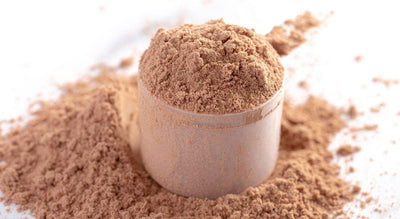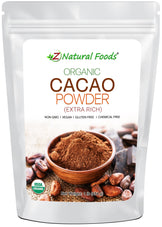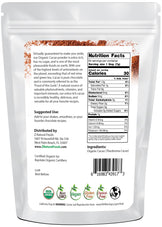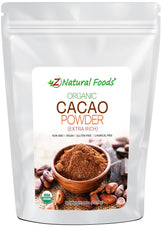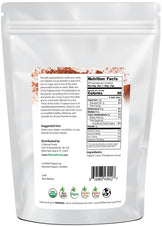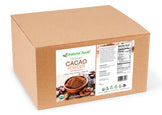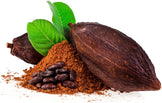Description
Description
Valentines Day represents the time when we celebrate our love for that special person.
As John Paul Young said in his 1977 song…
“Love is in the air”
This is also the time of year where cacao, “the food of love”, is found in different forms featuring a variety of percentages of cacao. Whether a special dessert, added to a daily mix of cream and coffee, enjoyed as a chocolate bar or a delicious recipe, there are almost endless ways to enjoy cacao.
You see, cacao is a rare food. That’s because of what is inside cacao, literally. The experience of love that we often feel when we eat a nourishing form of cacao can be mostly attributed to these three amazing compounds.
Caffeine for its stimulating effects
First, is the infamous alkaloid caffeine. I think it is safe to say that caffeine is the most widely used stimulating agent in the world, for good reason. It is well-known that caffeine stimulates the central nervous system. And according to studies it may also stimulate blood flow in the brain (8) (9) and increase secretion of serotonin (8). Around 300 milligrams (mg) a day of caffeine has been shown to be a beneficial dose for most adults, with a 50-gram serving of cacao packing about 35 mg of caffeine.
Theobromine is a powerful antioxidant
Theobromine, also known as caffeine’s cousin, is largely found in cacao and tea. In one 50-gram serving of
Phenylethylamine (PEA) is arousing
Phenylethylamine (PEA) is the true love compound found in cacao. While PEA is in cacao only in small amounts, it carries a big effect. Via stimulation of the nervous system, PEA triggers the release of endorphins and potentiates the activity of dopamine associated with sexual arousal and pleasure (11,12). So, in other words, that restless feeling you have when you are in love is mostly due to PEA.
If these three reasons aren’t enough for you to enjoy cacao this Valentine’s
There is a reason why this food is given on Valentine’s day
Untreated, raw, organic cacao has been used for centuries as a wonderful nourishing food. This food is exactly what Hippocrates had in mind when he made the statement “Let food be thy medicine”.
In fact, cacao may nourish many aspects of a healthy heart. And the research is quickly piling up. According to a recent Japanese study, the polyphenolic compounds (a class of antioxidants) found in cacao shows great promise in possibly suppressing inflammation levels in the cardiovascular system (1). Another study showed that consumption of cacao flavanols had a positive impact on cardiometabolic function -- affecting the heart and metabolic conditions like diabetes (2).
The ultimate feel-good brain-food
Cacao seems to have even more happy effects. A study conducted by researchers at the University of Reading showed the positive effects of cacao on the pressure of blood flow to the brain (3), while Italian researchers recently showed how cacao may trigger neuroprotective effects (4). Even
But it gets even better:
Researchers at the Department of Food Science and Technology in Seoul, South Korea found that cacao has a higher antioxidant capacity than red wine and a variety of teas (6).
And to top off these wonderful benefits, cacao is an excellent source of magnesium, iron, calcium, selenium and zinc (7).
But can eating cacao really make you fall in love?
With all the good news about this tasty food, the science, research and support of cacao virtually
About Michael Stuchiner
 Michael Stuchiner is an experienced Master Herbalist, the Head of Education for Z Natural Foods, a teacher and an accomplished author. With a 16-year specialization in medicinal herbs, Mike also has a vast knowledge
Michael Stuchiner is an experienced Master Herbalist, the Head of Education for Z Natural Foods, a teacher and an accomplished author. With a 16-year specialization in medicinal herbs, Mike also has a vast knowledge
As an “in-the-trenches” herbalist, Mike has done more than 85 speaking engagements, consulted with clients ranging from young to elderly, worked with athletes in virtually all sports and with clients who have “dis-ease” states of a wide variety. Mike also mentors student Master Herbalists and will continue to teach the next generation to grow a deeper wisdom of the human body through appropriate herbal remedies.
For Bulk inquiries and custom formulations click here: https://www.znaturalfoods.com/pages/bulk
References
-
Zempo H, Suzuki J, Watanabe R, Wakayama K, Kumagai H, Ikeda Y, Akazawa H, Komuro I, Isobe M. 2016. “Cacao polyphenols ameliorate autoimmune myocarditis in mice.” Pubmed.gov Accessed January 31,
2018 https://www.ncbi.nlm.nih.gov/pubmed/26657007 -
Davison K, Howe PR. 2015. “Potential implications for dose and diet for the effects of cocoa flavanols on cardiometabolic function.” Pubmed.gov Accessed January 31,
2018 https://www.ncbi.nlm.nih.gov/pubmed/26111215 -
Lamport DJ, Pal D, Moutsiana C, Field DT, Williams CM, Spencer JP, Butler LT. 2015. “The effects of
flavanol rich cocoa on cerebral perfusion in healthy older adults inconscious resting state.” Pubmed.gov Accessed January 31,2018 https://www.ncbi.nlm.nih.gov/pubmed/26047963 -
Cimini A1, Gentile R, D'Angelo B, Benedetti E, Cristiano L, Avantaggiati ML, Giordano A, Ferri C, Desideri G. 2013. “Cocoa powder triggers neuroprotective and preventive effects in a human Alzheimer's disease model by modulating BDNF
signaling pathway.” Pubmed.gov Accessed January 31,2018 https://www.ncbi.nlm.nih.gov/pubmed/23554028 -
Scholey A, Owen L. 2013. “Effects of chocolate on cognitive function and mood: A systematic review.” Pubmed.gov. Accessed Jan 31,
2018 https://www.ncbi.nlm.nih.gov/pubmed/24117885 -
Lee KW1, Kim YJ, Lee HJ, Lee CY. 2003 “Cocoa has more phenolic phytochemicals and a higher antioxidant capacity than teas and red wine.” Pubmed.gov. Accessed January 31,
2018 https://www.ncbi.nlm.nih.gov/pubmed/14640573?dopt=Citation -
Cinquanta L1, Di Cesare C2, Manoni R3, Piano A4, Roberti P4, Salvatori G2. 2016. “Mineral essential elements for nutrition in different chocolate products.” Pubmed.gov. Accessed January 31,
2018 https://www.ncbi.nlm.nih.gov/pubmed/27346251 -
Simone Cappelletti,1 Piacentino Daria,2 Gabriele Sani,2 and Mariarosaria Aromatario 1
,. 2015. “Caffeine: Cognitive and Physical Performance Enhancer or Psychoactive Drug?” Pubmed.gov. Accessed January 31,2018 https://www.ncbi.nlm.nih.gov/pmc/articles/PMC4462044/ -
Merideth A. Addicott
,a Lucie L. Yang, a Ann,a Luke R. Burnett,a Jonathan H. Burdette,a Michael Y. Chen,aSatoru Hayasaka,c,a Robert A. Kraft,b Joseph A. Maldjian,a and Paul J.Laurientia 2009. “The Effect of Daily Caffeine Use on Cerebral Blood Flow: How Much Caffeine Can We Tolerate?” Pubmed.gov. Accessed January 31, 2018. https://www.ncbi.nlm.nih.gov/pmc/articles/PMC2748160/ -
Eva Martínez-Pinilla,1,* Ainhoa Oñatibia-Astibia,2 and Rafael Franco 3, 2015. “The relevance of theobromine for the beneficial effects of cocoa consumption.” Pubmed.gov. Accessed January 31,
2018 https://www.ncbi.nlm.nih.gov/pmc/articles/PMC4335269/ -
Sabelli H1, Fink P, Fawcett J, Tom C. 1996 “Sustained antidepressant effect of PEA replacement.” Pubmed.gov. Accessed January 31,
2018 https://www.ncbi.nlm.nih.gov/pubmed/9081552 - Ash M. 2010 “PEA- a natural antidepressant” https://www.clinicaleducation.org/resources/reviews/pea-a-natural-antidepressant/

